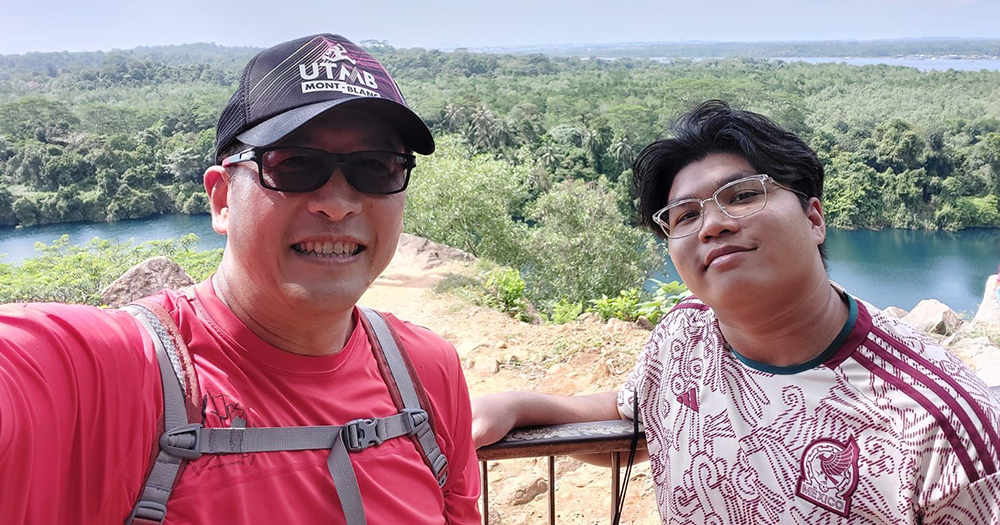Follow us on Telegram for the latest updates: https://t.me/mothershipsg
It's 2023 but for some people in Singapore, "ITE" still stands for "it's the end". So what would they think of an ITE dropout?
That's the question I'm left pondering when I receive a press release in my inbox one day.
The release details, in cheerful language, a programme called CAMP. It's a fun acronym that stands for "Career Advice and Mentoring Programme (CAMP)". It's essentially a mentoring programme for ITE's "premature leavers" by the Ministry of Social and Family Development.
The description of the profile I'm given is vague: Afdlin is 18, a lover of sports and the outdoors, and — in less sensitive language — an ITE dropout.
Cool.
Whatever expectations I might subconsciously harbour are promptly dissolved, however, as soon as he walks through the door. Afdlin is an amiable, eloquent teenager, quick with many a witticism and dry remark. Right off the bat, he introduces himself as "18 this year, but still 17".
"Gotta enjoy that," he quips.
He works at Decathlon and is a huge football fan. He enjoys English and PE, and his least favourite subject is Math — "from then till now, the only thing dragging me down is Math," he informs me. "I'm pretty good at the other subjects."
His easy confidence surprises me, and I'm slightly taken aback when he tells me later that he was, in fact, from the Express stream. (Going to ITE as an Express student is not unheard of, but unusual.)
He tells me that he was the first in his family to make it to that route. "My mum is smart, but she was from Normal (Technical). And my dad is from Normal (Academic)," he says.
"So when I got my PSLE results, my mum cried. Because she didn't expect me to go to Express."
Upon entering secondary school, he quickly settled on a goal: to enter Republic Polytechnic's Sports Science course, a natural fit to his outgoing, outdoorsy spirit.
He describes his first two years of secondary school as "some of the best years in [his] life". His third and fourth years of secondary school were stressful, but not enough to dissuade him from his goal. As his O-Levels drew closer, he remained confident that he could make the required grades.
"Even if I didn't do well, I could still go to poly and take sports science, which is what I wanted to do," Afdlin explains.
Unfortunately, during his O-Levels, he caught Covid. As per standard procedure, the grades from his past school exams (including the prelims, which are typically set much harder than the national exams) were used to project his expected O-Level performance instead.
This meant that his final grades were far below what he expected. Worst of all, he had to settle for an F9 in Math, ruling out his dream course, which required just a slightly better score of E8 at least.
"When I got my results, I was very disappointed, I almost cried," he says.
"To be honest, I didn't dream of, or even think of going to ITE. Because, I don't know man." He pauses. "ITE and poly is such a big difference."
Getting lost
Resigned to accepting his results, Afdlin decided to apply for a few ITE courses that interested him. But he ended up being posted to one of his last choices: Leisure and Travel Operations.
While his teachers and classmates were friendly, he immediately felt out of place, he confesses. "I'm pretty sure in the first week of the course, I already got second thoughts about it."
Things only got worse from there, and soon, he found himself submitting an application to withdraw.
"It wasn't even a year," he tells me dryly. "I think it was about a month."
At that point, he'd planned on it being more of a gap year than anything. His mother was resigned: "She was like, as long as you go back to studying, I don't mind you dropping out," Afdlin explains.
"My father was the one that was a bit strict. He really didn't want me to leave.
But I told him I was going to do something [later on]. And he said, okay, as long as you don't stay home and do nothing. So that's why I decided to work."
It was with this knowledge that he came to be mentored under CAMP. Not content to sit around idly while waiting out his job applications, he decided to accept MSF's offer of mentorship.
"How did you find out about the programme in the first place?" I ask — in all honesty, more to the MSF representative (who's sitting in for our interview) than anyone else.
But before the MSF representative could reply, Afdlin interjects — he remembers perfectly. It was the day of his dreaded withdrawal interview, "a very stressful day", he describes.
Afdlin remembers the meeting last year was done over Zoom, early in the morning. He adds dryly: "I'm pretty sure I hadn't slept."
Apart from his teacher and principal, there was one other person who sat in on the meeting.
Afdlin remembers wondering who that "random guy who I knew nothing about" was.
It was only at the end of the interview that the stranger introduced himself: his name was Vincent, and he was there representing CAMP, a youth mentoring programme.
"At that point of time, my thoughts were, 'might as well just take this opportunity'. Because I'm gonna be at home most of the time anyways; I am gonna have nothing to do."
He pauses, and adds: "And I'm probably gonna be lost, about what I'm gonna do in the future.”
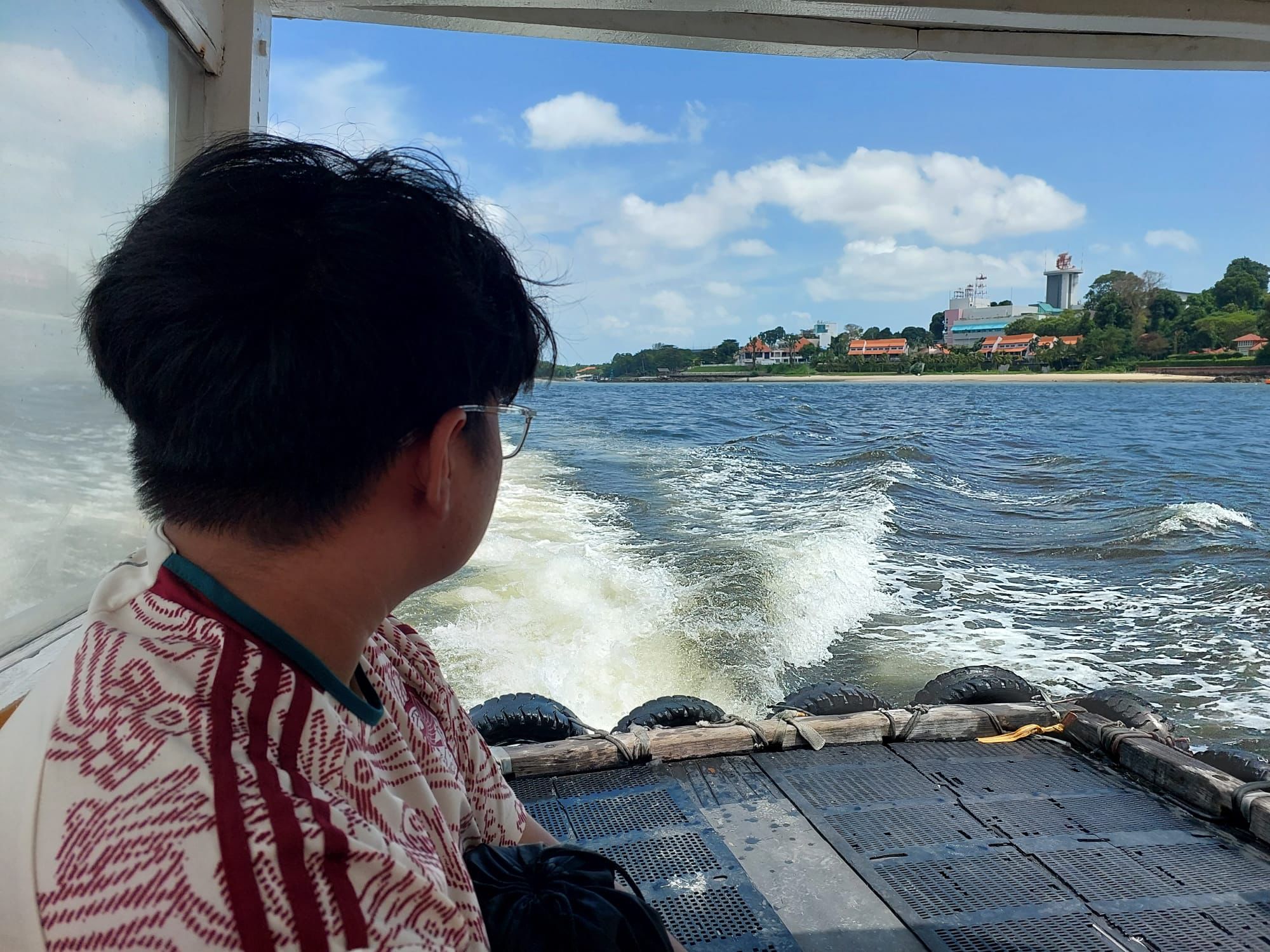 Image courtesy of David Lim
Image courtesy of David Lim
The mentor
At first glance, it's hard to imagine how David Lim would get along with Afdlin.
Whereas the latter has a relaxed, self-assured kind of air, Lim exudes strong outdoor junkie vibes, with an abundance of endorphins to match.
Broad-shouldered and tanned, he turns up at the interview in a polo tee emblazoned with the words "Everest Base Camp" (he's been) and talks about distance in “klicks” (a military term that means kilometre).
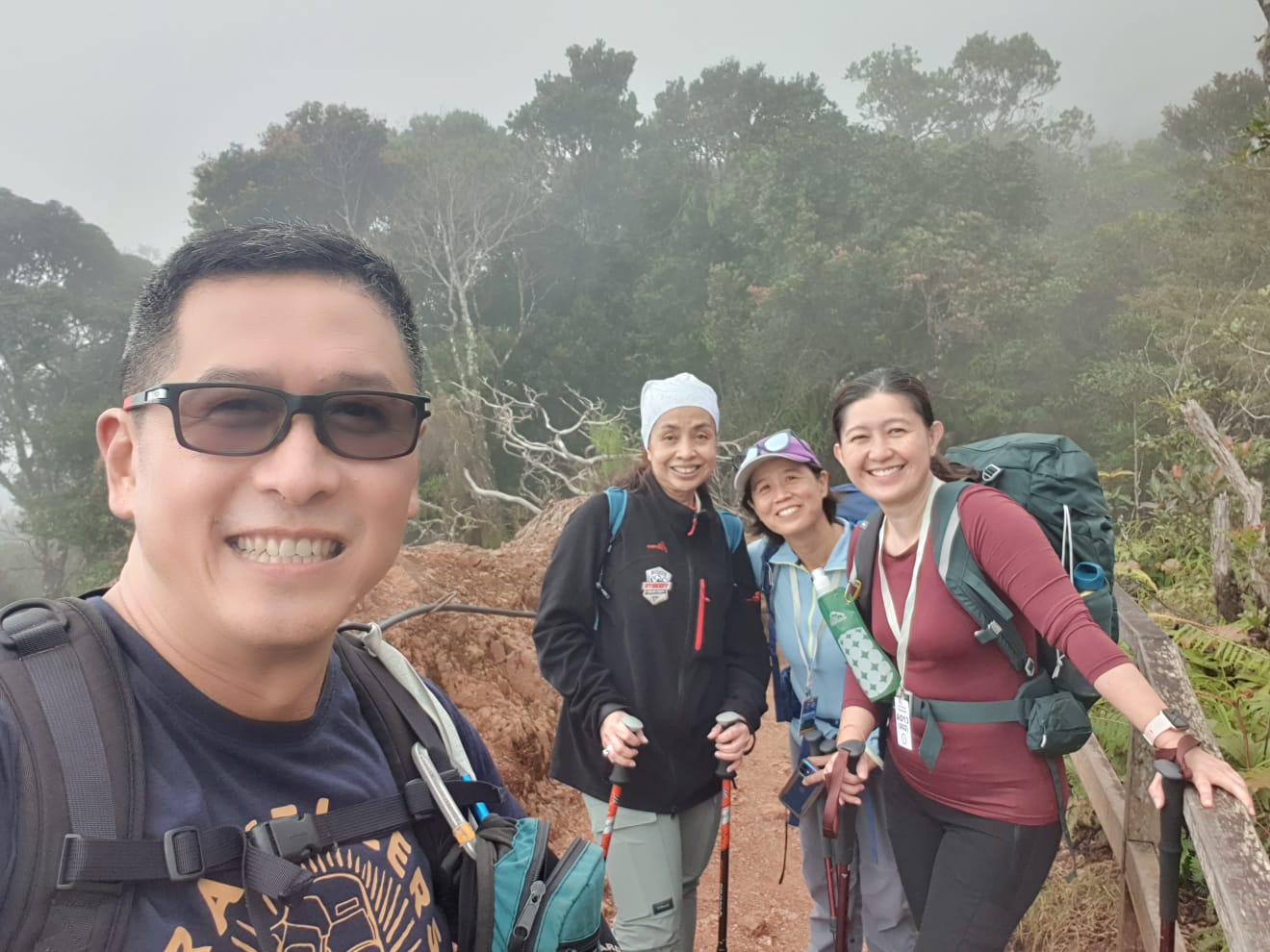 Image courtesy of David Lim.
Image courtesy of David Lim.
It’s not just talk, either. Over the course of our conversation, he alludes to his pastimes with the same casual ease I would use to describe grabbing brunch with my girlfriends.
“Last year, after her PSLE, I brought my eldest to climb Ophir,” he says at one point. At another, he tells me about how he, in 2000, participated in Singapore’s first Antarctic expedition and trekked the South Pole.
“Cool,” I reply lamely.
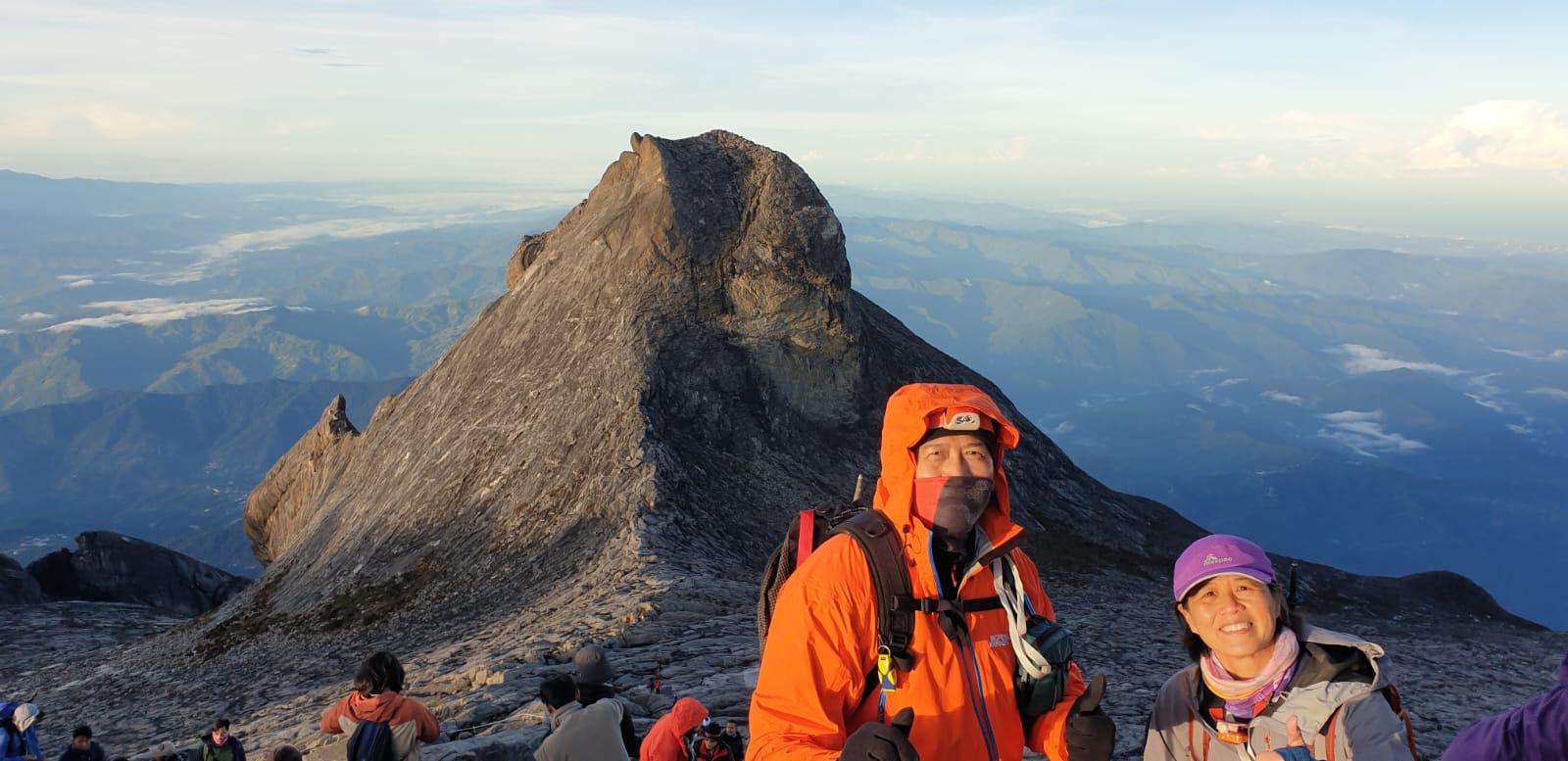 Lim at Mount Kinabalu, November 2022. Image courtesy of David Lim.
Lim at Mount Kinabalu, November 2022. Image courtesy of David Lim.
But Lim and Afdlin do share a passion for sports. As a trainer at Outward Bound Singapore, Lim was assigned to mentor Afdlin in hopes of re-igniting that interest, and encouraging him to go back to school.
On that note, I ask about his own teenage experience. I'm unsurprised to hear that he was "a pretty competitive student".
"Focus on studies, excel in sports," he summarises. "That's it."
Born in Kuala Lumpur as the youngest of five siblings, Lim was sent to Singapore at 13. His parents never asked him to excel, he tells me, but even at his young age, he understood the opportunity he was getting — and was determined not to squander it.
It's something Afdlin can relate to; "When we first met, he said that he could see himself in me. I'm actually very competitive as well," Afdlin admits.
It's only later that I realise it, but even though Afdlin doesn't say so outright, I wonder if his family was — in a way — pinning their hopes on him, their eldest son. A bit like Lim.
The first time they met was at a walk hosted by CAMP. "He was in his sports attire, ready to go," Afdlin recounts.
"Very big smile, just talking to everybody...I could see that he was a very sporty and friendly guy."
Conversation flowed easily between the pair, and Afdlin adds that he didn't even feel tired because "we talked so much...it made the entire journey quite fast".
Ever since that first meeting, the pair have texted regularly and even met up a few times, all in settings designed to remind Afdlin of his love for the great outdoors.
So far, Lim has organised a night cycling session and a tour of the OBS campus in Pulau Ubin. (Their next excursion will be to Chek Jawa, also in Pulau Ubin, Lim informs me, since they’ve already explored the western side of the island.)
 Image courtesy of David Lim
Image courtesy of David Lim
"So what made you realise that he was a good mentor for you?" I ask.
"I saw that every time we go out, there's gonna be at least three to five people going, 'Hey David!'," Afdlin says.
"He's like a very popular guy. A very cool guy. And I thought, 'this is what I want to be in the future.'"
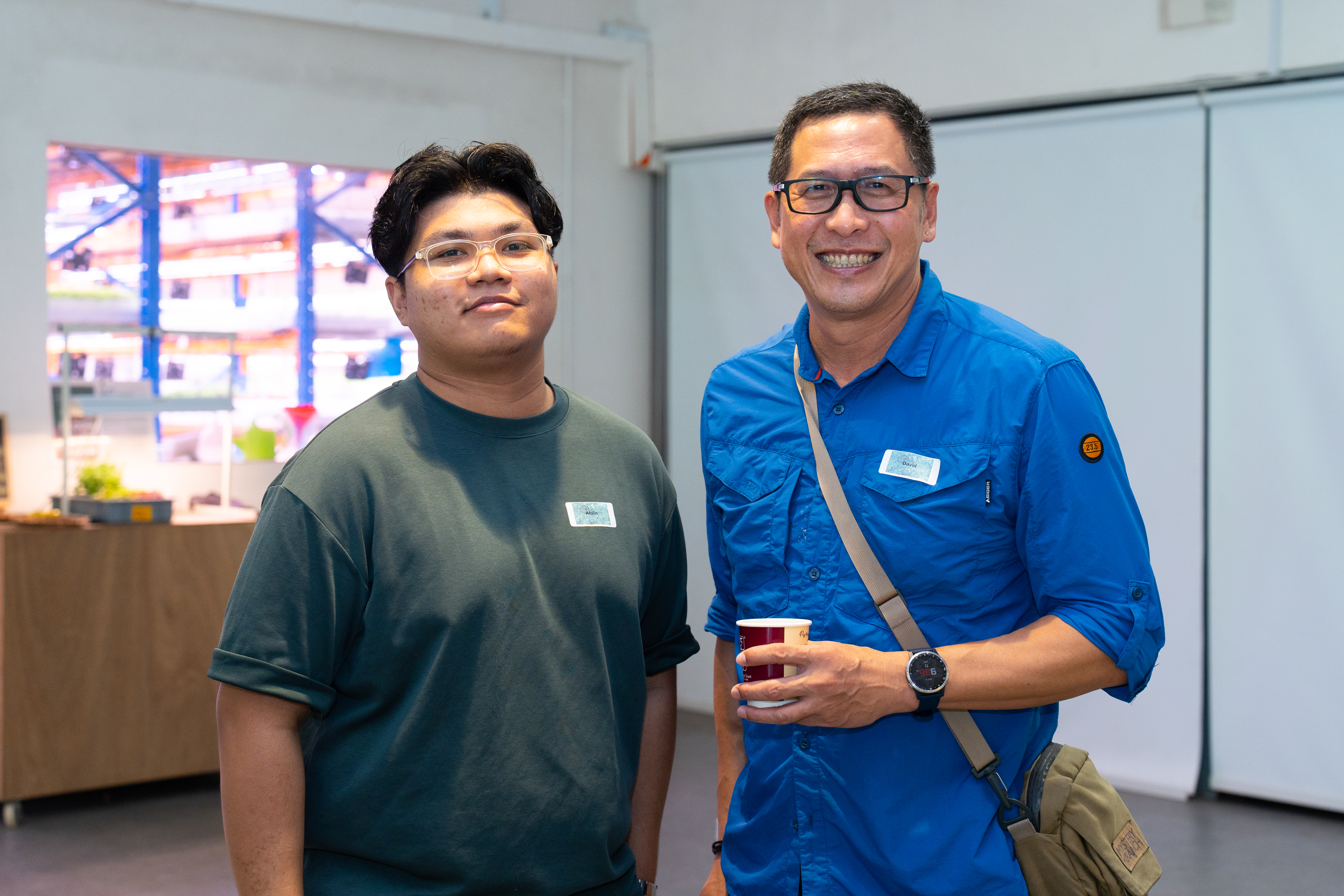 Afdlin and Lim at an event marking the first-year milestone of the Career Advice and Mentoring Programme (CAMP). Photo courtesy of MSF.
Afdlin and Lim at an event marking the first-year milestone of the Career Advice and Mentoring Programme (CAMP). Photo courtesy of MSF.
Path less travelled
It would be easy to attribute their friendship to natural chemistry. Indeed, I find, they have plenty in common: that natural sociability, that independent streak that borders on good-natured defiance.
But it is more than that. There is also an unspoken understanding in taking the path less travelled — Lim by opportunity, Afdlin by ill fate.
"Coming in at the age of 13, you don't have any friends. And you don't have parental support," said Lim recalling his own adolescence.
"You're in a foreign land...and you have no one to turn to, no one to consult."
That feeling of being lost is something that resonates deeply within Afdlin.
Even now, as he weighs the possibilities of returning to school, I suspect that he’s still not quite sure of his future — or is perhaps a little afraid to set his plans in stone. Life has not been kind to his previous plans, after all.
His mentorship under Lim did successfully re-ignite an interest in sports. But after searching for an alternative route to his dream course, he found that he remained ineligible — surely a disappointment.
Still, he shares that he is eager to get back to school, even if it’s to study something different.
"I took a year's break, so my mind is fresh now,” he says, adding that he has applied for visual merchandising a second time. He continues: “My auntie was also in visual merchandising…and my friends all said that it’s a very fun course.”
His dauntless optimism, even after being forced into this detour, is admirable. But ever the pessimist, I persist in asking: “What if you don’t get in?”
"Actually at this point, I just want to get into any course, because the thought of going NS at 18 years old..." he cracks. We laugh.
A certain comfort
A few days after the interview, I decide to check in with Lim on how Afdlin’s applications are going.
While waiting for his reply, I reflect on my conversation with the pair. I remember how both Afdlin and Lim both admitted that they saw a little something of themselves in the other, and how that parallel experience managed to connect them across age, race, even distance (Afdlin lives in the west, Lim in the east).
For Afdlin, life got in the way of his plans. But perhaps there’s a certain comfort you can take in speaking to someone older who just kind of gets you, even if he is a stranger.
More than giving you instructions and advice, there’s that reassurance: they came out of their trials okay. So will you.
On a whim, I send him a follow-up text: does he plan to continue mentoring Afdlin, even if he doesn’t get into the course he hopes for?
“I am committed to walk this journey with him regardless of which course he takes,” he replies. A little stiff, but sweet.
Strangely enough, he goes on to inform me that he’s texting me from Tangkak, Johor. “Climbing Ophir tomorrow,” one message says. I’m pondering it when another message comes in, as if on cue: “I set a goal for [Afdlin] to climb Mt Ophir in time to come. He is exhilarated!!”
“Wow, you will climb with him?” I ask.
“Absolutely,” he replies. Just like that.
Youths or stakeholders working with youths who have left ITE prematurely can request for more information or sign up at the CAMP website here.
Top image courtesy of David Lim
If you like what you read, follow us on Facebook, Instagram, Twitter and Telegram to get the latest updates.
